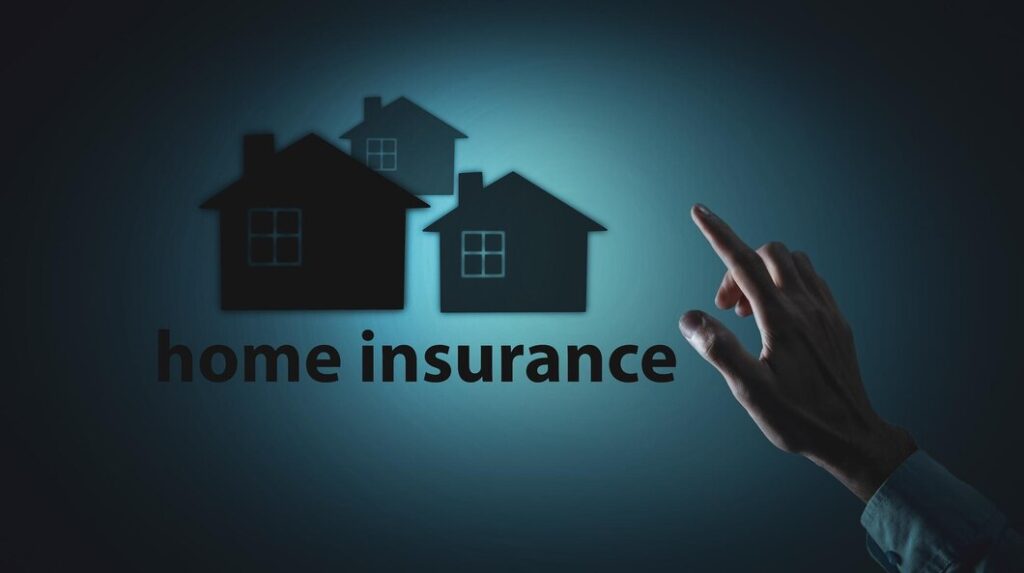Everything You Need To Know About Home Insurance

Your home is one of the biggest assets in your life. This is why protecting it against any kind of natural disaster is very important. Whenever homeowners of America purchase a new house or already have one, they make sure to get instant residence insurance.
Doing this not only ensures the financial protection of their house but also lets them bear the loss in case of any theft, disaster (earthquake, etc) with the best insurance plan in hand.
If you are about to purchase an open house insurance, this read is going to be handy for you. It covers everything you need to know about your house insurance.
So let’s discuss things in detail!
What Is Homeowners Insurance?
“As the name suggests, this policy helps you protect your property in case of any damage occurring to it.”
This insurance plan covers specific events (like fire, theft, or wind damage) that cause any harm to your home and assets contained in it. Overall, house insurance serves as a safety net for your property and belongings.
Why Do You Need Home Insurance?
Insuring your house is very important to avoid any problems. These might include sudden fire breakout, storm ripping through the roof, etc. And being a homeowner of America, you would not want that to happen. This is why home insurance can make your residence fully secured.
Here’s how!
Investment Protection
- Financial Recovery: Homeowners insurance provides maximum financial protection in case your house gets damaged due to windstorms, lightning strikes, fire, hailing, or vandalism.
- Replacement Costs: You can get financial value in case of loss for any beloved asset or furniture or even electronics item. It is totally based on your policy plan.
Peace of Mind
- Unexpected Events: Life is unpredictable. Unexpected events can occur at any time due to any cause. But home insurance lets you fight these problems with a better kick-back strike.
- Liability Coverage: The plan covers dues for any medical emergency that happens to anyone at your residence, which is indeed a great benefit.
Covers More Than Just Your House
- Detached Structures: Many policy plans regarding homes can help you get complete coverage for damages to detached structures like garages, guest houses, or sheds.
- Guest Protection: If a guest gets injured at your home, liability coverage can help protect you from financial responsibility.
Common Types of Homeowners Insurance Policies
The following are the 8 types of open house insurance that homeowners of America should know about:
HO-1 (Basic Coverage)
It is also known as ‘bare-bones’ coverage and includes protection against a limited number of damages. These might include fire, theft, vandalism, etc. This is the most affordable insurance option, but it might not cover other important benefits.
HO-2 (Broad Coverage)
This is an advanced version of HO-1 and provides more coverage than that. Besides perils mentioned for HO-1, it includes safety against windstorms, explosions, hailing, etc. This is why it is considered a good middle ground for many homeowners of America.
HO-3 (Most Common Coverage)
It is the most common type of homeowners insurance that cover home against all physical damages. It does not include events like earthquakes, floods, etc.
HO-5 (Comprehensive Coverage)
This plan offers more detailed coverage for your property belongings, both vitual and physical. Usually, homeowners with high-value houses purchase this openhouse home insurance type.
HO-6 (Condominium Coverage)
As the name signifies, this policy is specially designed for condominium owners. It covers the interior portion of condo and everything belonging to it. In addition to that, the Master condo policy plan covers the complete building structure itself.
HO-8 (Renters Insurance)
This plan belongs to renters only and lets them protect their assets while living on rent in a particular residential property.
Related: If you want to know more about the types of home insurance, click here and read another article with everything related covered.
What Does Homeowners Insurance Cover?
Dwelling Coverage Example
It is a part of your home insurance that covers the actual structure of your house. These include:
- Walls & floors
- Windows
- Built-in appliances
- Furnaces
- Attached garage and porch area
Events Covered:
You will get complete dwelling insurance coverage for your home while purchasing any open house insurance package. It covers events such as hail, fire, storms, etc, as mentioned above in the article.
How Does It Work?
Suppose, unfortunately, a heavy storm wind crushes a part of your home’s roof. In such a condition:
- You pay your deductible: This is your initial contribution towards any repair. It is fixed and finalized at the time when homeowners of America buy insurance for their residencies.
- Insurance pays the rest: The insurance company then subtracts your deductibles from the repair cost and pays the remaining dues.
Other Structures Coverage
Other structure coverage examples includes a compensation plan for various elements rather than your house structure.
Events Covered
- Sheds
- Detached garages
- Fences
- Pools
- Guest Houses or In-Law Suites
How Does It Work?
Now suppose heavy snow damages a certain portion of your house’s boundary fence. In this scenario, you need to take the following steps:
- File Your Claim: Contact your insurance agency and tell them about the incident.
- Application of Deductibles: Again, you have to pay deductibles.
- Coverage Pays Remainder: Likewise, for dwelling coverage, the company will pay the rest of the payment to repair your house fence.
Medical Payments Coverage
This is just like the liability coverage. It covers pay if you cause any physical injury to a person outside your property premises.
Events Covered
- If someone gets harmed on your property
- Maybe you cause harm to anyone, but not intentionally
How Does It Work?
For instance, if your dog bites someone, this is not an intentional incident. In such a condition, your home ownership quotes cover the expenditures of the infected person’s treatment.
Personal Property Coverage
Your clothes, furniture, electronic devices, and appliances are included in your personal property which directly refers to your personal belongings. If you lose any of these things, then it is a loss that must be recovered according to different personal property policies.
Events Covered
All homeowner policies are not the same but somehow different. Some policies may include the loss of your personal belongings, but others don’t include these personal belongings. They only include disasters that are listed as under:
- Your house caught in Fire or lightning.
- Smoke
- When Windstorms and hail bring disaster to your home
- Explosions
- Theft
- Vandalism
- Weight of ice, snow and sleet
- Sudden damage from a power surge
- Volcanic eruptions
- Falling objects
- When water overflows due to poor plumbing systems, air conditioning, and appliances.
- Freezing of those same household systems
- Sudden tearing, cracking, or bulging of hot water, steam, air conditioning, or fire protective system us also included in the house owner policy.
- Riots
- When your home is damaged due to some serious aircraft or vehicles
How Does It Work?
If a pipe bursts on a cold winter night and floods your kitchen and dining room, your personal property coverage would pay for damage to built-in items like cabinets. It would also cover damaged furniture, but you would still need to pay your deductible.
Liability Coverage
You will get proper financial aid when you destroy someone’s property. Personal liability coverage helps you pay penalties properly.
Events Covered
If you are injured or your property is destroyed in some accidents, then this is included in this liability insurance. For example, your policy won’t cover criminal acts or intentional harm. It also won’t pay for injuries or damage from a car accident. For the recovery of these damages, you must have car insurance.
How Does It Work?
If someone gets any physical injury on your property and he is in a serious condition, so if you have liability coverage, then it will pay all the hospital dues on your behalf as an homeowners of America.
Also Visit: Questions to ask when buying home insurance to ensure you have maximum information before you buy home insurance quote.
Home Insurance Coverage Amount Chart
The following chart is packed with the basic information about all the above-mentioned coverage amounts:
Homeowners of America Insurance Coverage Breakdown
| Coverage Type | What it Does | Typical Amount |
|---|---|---|
| Personal property | Pays to repair or replace stolen or damaged belongings. | 50% to 70% of dwelling coverage |
| Other structures | Covers stand-alone structures on your property, such as a fence or shed. | 10% of dwelling coverage |
| Loss of use | Helps pay temporary living expenses while your home is being repaired. | 20% of dwelling coverage |
| Medical payments | Pays to treat someone injured on your property, regardless of who’s at fault. It also pays if you, a family member or a pet injures someone away from your home. | $1,000 to $5,000 |
| Personal liability | Pays if you injure someone or cause property damage unintentionally or through neglect. | $100,000 to $500,000 |
| Dwelling | Covers damage to the home and attached structures, such as a porch. | Enough to rebuild your home. |
People Also Ask
What is the 80/20 rule for home insurance?
The rule states that if you want to receive full coverage from your insurance company, then you as homeowners of America must have a replacement cost coverage of at least 80% of the total replacement cost.
Is homeowners insurance tax-deductible?
Not at all! Until or unless your property does not create income, the home insurance premiums are not considered tax-deductible.
What is the first step to consider when buying homeowners insurance?
One of the insurance tips while buying home ownership insurance is to assess your needs. This can be done by evaluating the market value of your house and related liability risks. This lets you better estimate the coverage payment needed to cover your expenses.
Is home insurance paid monthly or monthly?
If you are not using an escrow account and paying insurance installments directly, then it’s up to you whether you like to pay monthly, quarterly, semiannually, or yearly.
Does paying off a mortgage affect house insurance?
No, paying off the mortgage never reduces homeowners insurance premiums. Owning home insurance isn’t a law, but it’s a smart way to protect your house from expensive repairs if something bad happens. Even though it’s not mandatory, having insurance is still a good idea to avoid financial trouble.
Some Common Problems Associated With Home Insurance
The table below is a summarized version of some common problems that might or not be covered in your homeowners choice insurance plan.
Homeowners Insurance Coverage: A Quick Guide
| Problem | Covered? | Details |
|---|---|---|
| Lost jewelry | Usually not | Standard policy covers theft or named events, not accidental loss. Consider broader coverage. |
| Mold | Maybe | Depends on the cause. Covered if caused by a covered event (burst pipe). |
| Plumbing | Maybe | Sudden leaks may be covered, slow leaks generally are not (considered maintenance). |
| Roof leaks | Maybe | Depends on the cause. Sudden events (hail, wind) are covered, wear and tear is not. |
| Septic systems | Maybe | Covered if damaged by a covered event (fire, lightning), but not by negligence or wear and tear. |
| Termite damage | Usually not | Considered regular maintenance, not covered. |
| Water damage | Maybe | Depends on the type. Floods and backed-up drains are not covered (unless endorsed). Burst pipes and resulting damage are usually covered. |
| Dog bites | Usually | Liability coverage pays if your dog bites someone outside your household. |
| Fallen tree | Maybe | If a covered event (storm) knocks it on your home, removal is covered. Otherwise, no. |
| Fire | Usually | Standard peril covered by most policies. |
| HVAC problems | Maybe | Covered if a covered event (windstorm) damages it. Consider adding an equipment breakdown endorsement. |
National Association of Insurance Commissioners (NAIC): A resource from state insurance regulators, the NAIC offers consumer guides on homeowners insurance: https://content.naic.org/
Consumer Reports: A trusted consumer resource, Consumer Reports offers unbiased reviews and ratings of homeowners insurance companies: https://www.consumerreports.org/money/homeowners-insurance/buying-guide/



I like this blog it’s a master piece!